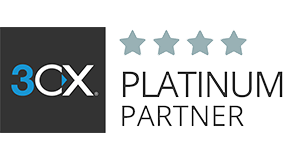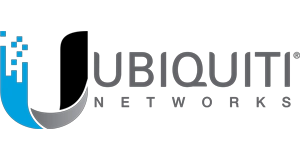Technology can drive your business to success, especially if you have the right IT crew. For organisations with limited or no in-house tech talent, the practical and strategic solution is Managed IT Services.
Why? With Managed IT, tech experts from a third-party provider will manage your entire IT stack. It’s like having your own IT department without the employment expenses and the stress. (More on that in Why You Need to Outsource Your IT Services)
Managed IT services can also streamline your processes, boost productivity and enhance your security, enabling you to focus on core competencies. But how can you get the most out of it?
1. Choose the Right Managed IT Partner
It all starts with finding the ideal Managed Service Provider (MSP) for your Sydney-based business. What should you look for?
Service Level Agreements (SLAs)
Ensure clear, measurable SLAs outlining response times, service uptime, and security protocols.
Proactive vs. Reactive Support
Look for proactive monitoring and maintenance services that can prevent issues early on. Avoid reactive “break fix” solutions.
Remote Monitoring and Management (RMM)
This ensures constant system health checks and rapid response to potential issues, preventing unwanted downtime.
Reviews
Get valuable insights by digging up an MSP’s track record, reading reviews and testimonials, and asking for recommendations.
Aligned Business Goals & Values
Select an IT partner with values, goals, and vision that complement your own, for easier decision-making.
Scalability and Flexibility
Choose a provider that can adapt to your evolving needs and growth, whether you are expanding your team or adopting new technologies.
Cost-Effective Solutions
Prioritise value over price. Seek transparent pricing models and solutions that will not break the bank.
Industry Expertise
Select a provider who understands the nuances of your industry. Your MSP should know your industry’s unique challenges that Managed IT Services can help to overcome. Here are some examples:
| Industries/Sectors | Challenges | How Managed IT can help |
| Not-For-Profit Organisations (NFPs) | Limited resources; lack of effective and secure data/donor management | Save on salaries, benefits, and training; Boost data and donor management with secure cloud solutions |
| Financial Planning / Insurance | Weak security of financial data against cyber threats | Implement effective security and disaster recovery solutions |
| Construction | Complex project management software; lack of reliable communication | Streamline operations through collaborative cloud platforms and reliable network infrastructure for effective communication |
| Medical Services | Vulnerability of patient data; inefficient compliance | Implement secure healthcare IT systems and compliance protocols |
| Real Estate Services | Lack of a dynamic online presence | Use secure cloud platforms for property listings; management of cyber threats to protect client information |
2. Establish Effective Communication
Clear, open, and consistent communication is crucial between your organisation and your Managed IT team.
Use Clear Communication Channels
Define your preferred communication methods, be it email, phone calls, or a dedicated portal – to ensure timely communication.
Specify Your Goals and Needs
Make sure your MSP understands your long-term business objectives and IT requirements, so they can recommend the right solutions.
Provide Timely Feedback
Don’t wait for issues to snowball. Reach out to your MSP as soon as you can with any concern, so they can promptly address it.
Regular Check-ins
Build a strong working relationship through regular meetings with your MSP. Discuss ongoing projects, upcoming initiatives, and potential challenges.
Stay Informed
Your MSP can be a valuable resource to help you stay ahead of the curve. Ask questions about the latest trends, best practices, and anything about IT.
(Find out How to Work Effectively With an IT Managed Service Provider.)
3. Take Advantage of a “One-Stop IT Shop”
With your MSP as the single provider for all your IT needs, you won’t have to juggle multiple vendors. Efficiency can improve, IT solutions will be easier to integrate, and you will have a single point of contact. This simplifies processes, cuts costs, and minimises confusion.
4. Prioritise Cyber Security
Cyber threats are a constant concern, especially if your business deals with sensitive data. This is why cyber security must be your top priority.
Work your MSP to:
- Conduct a security assessment
- Implement multi-layered security
- Continuously monitor and mitigate threats
- Ensure regular updates and patch management
- Implement security awareness training
- Develop an incident response and recovery plan
- Provide regulatory compliance support
5. Embrace Cloud Technologies
Cloud computing allows you to store, manage, and access your data and applications in physical servers in other locations, rather than on your own computer. Your team can then work from anywhere with an internet connection. This means more agility, enhanced productivity, and faster decision-making.
The cloud also helps with your data backup and recovery solutions, slashing downtime in case of disasters, and letting you continue operating even in the middle of disruptions like natural disasters or cyber-attacks.
Scalability is another benefit of cloud technologies. Your business can quickly scale your IT resources up or down to meet fluctuating demands, which is quite difficult if your IT is all on-premises.
Finally, cloud computing is cost-effective, because you typically have to pay only for the resources you use – eliminating unnecessary expenses. To get the most value out of your cloud investments, work with your MSP to analyse and optimise resource utilisation and identify cost-saving measures.
Make Your MSP Your Strategic IT Partner
An MSP can be a valuable asset if you know how to maximise their services. By following these tips, you can transform your managed IT Sydney provider into a strategic partner, one that can empower your business to leverage technology to its full potential.







